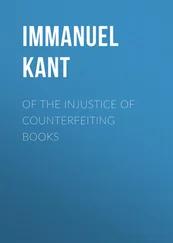Transcendental philosophy is the idea of a science, for which the Critique of Pure Reason must sketch the whole plan architectonically, that is, from principles, with a full guarantee for the validity and stability of all the parts which enter into the building. It is the system of all the principles of pure reason. If this Critique itself does not assume the title of transcendental philosophy, it is only because, to be a complete system, it ought to contain a full analysis of all human knowledge a priori . Our critique must, indeed, lay before us a complete enumeration of all the radical conceptions which constitute the said pure knowledge. But from the complete analysis of these conceptions themselves, as also from a complete investigation of those derived from them, it abstains with reason; partly because it would be deviating from the end in view to occupy itself with this analysis, since this process is not attended with the difficulty and insecurity to be found in the synthesis, to which our critique is entirely devoted, and partly because it would be inconsistent with the unity of our plan to burden this essay with the vindication of the completeness of such an analysis and deduction, with which, after all, we have at present nothing to do. This completeness of the analysis of these radical conceptions, as well as of the deduction from the conceptions a priori which may be given by the analysis, we can, however, easily attain, provided only that we are in possession of all these radical conceptions, which are to serve as principles of the synthesis, and that in respect of this main purpose nothing is wanting.
To the Critique of Pure Reason, therefore, belongs all that constitutes transcendental philosophy; and it is the complete idea of transcendental philosophy, but still not the science itself; because it only proceeds so far with the analysis as is necessary to the power of judging completely of our synthetical knowledge a priori .
The principal thing we must attend to, in the division of the parts of a science like this, is that no conceptions must enter it which contain aught empirical; in other words, that the knowledge a priori must be completely pure. Hence, although the highest principles and fundamental conceptions of morality are certainly cognitions a priori , yet they do not belong to transcendental philosophy; because, though they certainly do not lay the conceptions of pain, pleasure, desires, inclinations, etc. (which are all of empirical origin), at the foundation of its precepts, yet still into the conception of duty — as an obstacle to be overcome, or as an incitement which should not be made into a motive — these empirical conceptions must necessarily enter, in the construction of a system of pure morality. Transcendental philosophy is consequently a philosophy of the pure and merely speculative reason. For all that is practical, so far as it contains motives, relates to feelings, and these belong to empirical sources of cognition.
If we wish to divide this science from the universal point of view of a science in general, it ought to comprehend, first, a Doctrine of the Elements, and, secondly, a Doctrine of the Method of pure reason. Each of these main divisions will have its subdivisions, the separate reasons for which we cannot here particularize. Only so much seems necessary, by way of introduction of premonition, that there are two sources of human knowledge (which probably spring from a common, but to us unknown root), namely, sense and understanding. By the former, objects are given to us; by the latter, thought. So far as the faculty of sense may contain representations a priori , which form the conditions under which objects are given, in so far it belongs to transcendental philosophy. The transcendental doctrine of sense must form the first part of our science of elements, because the conditions under which alone the objects of human knowledge are given must precede those under which they are thought.
I.
Transcendental Doctrine of Elements.
Table of Contents
First Part. Transcendental Aesthetic.
Table of Contents
In whatsoever mode, or by whatsoever means, our knowledge may relate to objects, it is at least quite clear that the only manner in which it immediately relates to them is by means of an intuition. To this as the indispensable groundwork, all thought points. But an intuition can take place only in so far as the object is given to us. This, again, is only possible, to man at least, on condition that the object affect the mind in a certain manner. The capacity for receiving representations (receptivity) through the mode in which we are affected by objects, is called sensibility. By means of sensibility, therefore, objects are given to us, and it alone furnishes us with intuitions; by the understanding they are thought, and from it arise conceptions. But a thought must directly, or indirectly, by means of certain signs, relate ultimately to intuitions; consequently, with us, to sensibility, because in no other way can an object be given to us.
The effect of an object upon the faculty of representation, so far as we are affected by the said object, is sensation. That sort of intuition which relates to an object by means of sensation is called an empirical intuition. The undetermined object of an empirical intuition is called phenomenon. That which in the phenomenon corresponds to the sensation, I term its matter; but that which effects that the content of the phenomenon can be arranged under certain relations, I call its form. But that in which our sensations are merely arranged, and by which they are susceptible of assuming a certain form, cannot be itself sensation. It is, then, the matter of all phenomena that is given to us a posteriori; the form must lie ready a priori for them in the mind, and consequently can be regarded separately from all sensation.
I call all representations pure, in the transcendental meaning of the word, wherein nothing is met with that belongs to sensation. And accordingly we find existing in the mind a priori , the pure form of sensuous intuitions in general, in which all the manifold content of the phenomenal world is arranged and viewed under certain relations. This pure form of sensibility I shall call pure intuition. Thus, if I take away from our representation of a body all that the understanding thinks as belonging to it, as substance, force, divisibility, etc., and also whatever belongs to sensation, as impenetrability, hardness, colour, etc.; yet there is still something left us from this empirical intuition, namely, extension and shape. These belong to pure intuition, which exists a priori in the mind, as a mere form of sensibility, and without any real object of the senses or any sensation.
The science of all the principles of sensibility a priori , I call transcendental aesthetic. 12 There must, then, be such a science forming the first part of the transcendental doctrine of elements, in contradistinction to that part which contains the principles of pure thought, and which is called transcendental logic.
In the science of transcendental aesthetic accordingly, we shall first isolate sensibility or the sensuous faculty, by separating from it all that is annexed to its perceptions by the conceptions of understanding, so that nothing be left but empirical intuition. In the next place we shall take away from this intuition all that belongs to sensation, so that nothing may remain but pure intuition, and the mere form of phenomena, which is all that the sensibility can afford a priori. From this investigation it will be found that there are two pure forms of sensuous intuition, as principles of knowledge a priori , namely, space and time. To the consideration of these we shall now proceed.
Читать дальше












